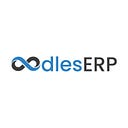ERP And Business Intelligence: Why They Are Connected
To manage disparate data silos on a single standard software platform, almost all businesses, regardless of size, have started employing ERP systems. If it cannot give you the information you need, all the data is useless. Information is nowhere to be found, which is the issue. Using business intelligence tools is crucial for maximising the value of the data. Companies are now emphasising the value of current data and the ways in which it may be used to generate insightful conclusions. As a result, they are now concentrating on big data efforts. An essential tool for any smart organisation is ERP. Integration of ERP and business intelligence improves analytics work.
Business intelligence is a process that uses tools and programmes to analyse data and deliver information that can be used to take action. The corporations use this data to help them make wise business decisions. BI bases its work on facts and employs past data to provide actionable knowledge. Analytics are a basic element in services for developing custom ERP software.
Let’s first examine the function that business intelligence plays in ERP software before moving on.
Let’s first have a sense of the significance of analytics reports produced by software systems. Data analysis is done through BI tools, which also provide reports, summaries, dashboards, maps, graphs, etc. As a result, the analytics give people the data information they need to understand your business far better.
Top benefits of performing data analysis :
1. It helps in minimizing business costs.
2. Recognize business problems.
3. Identify market trends
4. Faster and better decisions
Businesses might find possibilities to increase the effectiveness of their operations by integrating custom ERP solutions with business intelligence (BI) (which provides high-quality data insights).
Dashboarding, graphs, and data intelligence, for instance, can provide you with the knowledge and expertise you need to make better decisions. Additionally, a predictive data model that identified client requests and behaviours using prior customer data. Additionally, it enables them to react swiftly to customer demand.
Also Read: The Role Of Big Data Analytics In ERP Applications
Now, Find out about the benefits of integrating ERP and business intelligence tools :
1.Legacy data:
An enterprise application’s legacy data is regarded as being extremely important. It denotes the transfer of data from one software system to another. Utilising historical data for business purposes is crucial. If not, it can result in losses. Tools for business intelligence can only assist in using this historical data and carrying out accurate analyses.
2.Data warehousing:
Every day, enormous amounts of data are gathered by every expansion of an ERP system. To produce relevant insights, this data must also be processed. On the other hand, a sizable amount of data is underutilised. Business intelligence should therefore be used in ERP when it comes to data warehousing.
3.Only facts based decision-making:
Businesses cannot rely on gut feelings to make important strategic decisions thanks to BI tools and approaches. Business intelligence, on the other hand, shows market trends and patterns and offers factual information based on facts.
